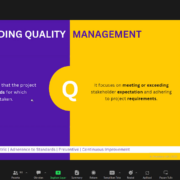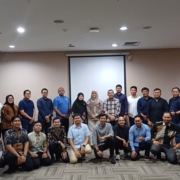UII Industrial Engineering Discusses the Evolution of Supply Chain Performance Measurement Systems in a Monthly National Webinar
The Industrial Engineering Study Program, Faculty of Industrial Technology (FTI), Universitas Islam Indonesia (UII) once again held a national webinar on Friday (May 16) with the theme “Supply Chain Performance Measurement System: From Evolution to Future Research.” The event featured Vembri Noor Helia, S.T., M.T. as the main speaker. He is a lecturer and researcher specializing in production systems and supply chains.
The webinar began at 9:00 AM WIB and was moderated by Distian Pingkan Lumi. After the opening and introduction of the speaker, the event continued with Vembri Noor Helia presenting the material. He discussed the results of a systematic literature review on performance measurement in supply chain systems.
Presentation of Materials
In his presentation, Vembri emphasized the importance of performance measurement as the foundation for continuous improvement. He cited Deming’s principles of quality management, which emphasize that,
“We cannot improve what we do not measure.”
He then discussed the definition and scope of the Supply Chain Performance Measurement System (SCPMS), including its evolution from conventional to modern approaches, highlighting the integration of sustainability and digital technology aspects.
The topic of SCPMS is important due to the increasing complexity of today’s global supply chains, which require companies to collaborate and adapt quickly. Performance measurement is not only applicable internally but also among actors in the supply chain, including suppliers, distributors, and end consumers.
“With digital transformation and global pressure for sustainable business practices, an integrated performance measurement system has become an urgent necessity,” explained Vembri.
He explained that SCPMS not only functions to measure internal company efficiency but also integrates performance among actors in the supply chain. In his presentation, he outlined the SCPMS lifecycle, which consists of four main phases: design, implementation, use, and evaluation.
The presentation also included the results of a systematic literature review of 78 international articles over the past two decades. The findings showed that the SCPMS approach has undergone significant development, particularly with the increasing integration of advanced analytical methods, sustainability, and digital transformation.
Discussion Session
The discussion session was lively. Several questions from participants raised current issues, such as the impact of digital transformation on supply chain performance measurement, challenges of the rebound effect in green supply chains, and questions related to examples of thesis titles relevant to the SCPMS theme.
Vembri cited the integration of real-time manufacturing and retail data as an example of digital performance measurement. Regarding the rebound effect, he suggested using risk identification and a circular sustainability model approach as strategic solutions.
The webinar concluded with an invitation to students to consider the topic of Supply Chain Performance Measurement Systems for their final projects and further research, given its broad application potential across various industrial sectors.
Rani Novalentina



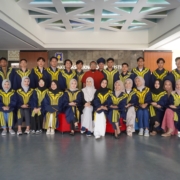
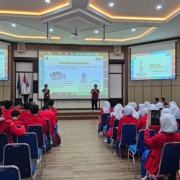


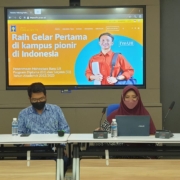 BERNAS
BERNAS 